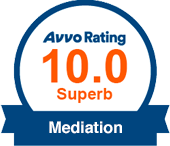Columbia Collaborative Family Lawyer
An Alternative Way to Deal With Your Divorce
Getting a divorce involves more than just having a judge dissolve the marriage. It encompasses deciding how you are going to split up your marital property, how custody of the children should be shared, and whether one party should get alimony from the other. Who knows better than you and your spouse what each of you and your children need? Collaborative law offers a way to resolve the issues in your divorce, child custody dispute or other family law matter in a way that ensures your needs will be met.
The Columbia collaborative family lawyers at Weinberg & Schwartz, L.L.C., are well-versed in collaborative practice and engage in it regularly to resolve divorces and other family law cases in Columbia, Howard County, and throughout Maryland. Learn more about collaborative family law below, and contact Weinberg & Schwartz, L.L.C., to discuss using collaborative in your Maryland family law matter.
What Is Collaborative Practice?
Collaborative law is an innovative, creative, and family-centered process that is an alternative to conventional litigation. It is an out-of-court legal process that allows both parties to retain separate, specially trained attorneys to assist them in settling their case without court involvement. Each party’s collaborative practice attorney works with his or her client to creatively reach an acceptable result.
Collaborative lawyers are specially trained in the process to reach compromises and allow the parties to make decisions that work for their family. The attorneys and parties commit to work outside the court system, which enhances the chances of a successful settlement. The collaborative practice philosophy is that it is in everyone’s best interest to work out the issues to arrive at the best possible outcome for the family.
Of course, there may be conflict in divorce; that is to be expected, to some degree. But just because conflict exists doesn’t mean it can’t be managed in a positive and constructive manner. If the parties are willing to commit to the collaborative process, they’ll find that it’s possible to resolve conflict without further damaging relationships or leaving emotional scars that last long after the divorce has been finalized. The experienced and dedicated collaborative family law attorneys at Weinberg & Schwartz, L.L.C., can help you get there.
How Does the Collaborative Process Work?
Couples can always work together collaboratively to solve the issues in their divorce, whether through informal negotiations or formal mediation. Collaborative family law, on the other hand, refers to a specific type of process and means something more than just that the parties are cooperating with one another toward an agreement.
First of all, in collaborative law, the parties agree in writing to utilize the collaborative process and refrain from using litigation or going to court to solve their matter. This agreement is signed by the parties as well as their attorneys. If the process is unsuccessful, the attorneys agree to withdraw from the representation of their clients. This means that if the parties want to move ahead with their divorce, they’ll have to start over with new lawyers, and the entire process to get divorced will take longer and cost more.
Collaborative practice, therefore, highly motivates the parties and their attorneys to commit to the process and see it through to a successful conclusion. This might mean compromising in areas that they might not compromise on in court, but the end result is typically an agreement that truly meets the needs of each party and genuinely reflects their interests on the issues most important to them.
Is Collaborative Practice More or Less Expensive Than Litigation?
The collaborative process typically involves bringing in a variety of experts who would be most relevant and helpful in solving the issues in the divorce. These professionals could include, for example, child psychologists, parenting coordinators, therapists, financial planners, and real estate brokers. Collaborative practice generally makes greater use of professionals than courtroom litigation or mediation, so there are more professional fees involved in the divorce. However, the parties can agree to split or share the costs of these professionals in the manner that works best for them both. When litigating in court, each party hires their own experts, so even if fewer experts are used, the costs are doubled.
Collaborative divorce tends to be faster and less expensive than litigation overall. Keep in mind, however, that if the process is unsuccessful, the parties need to start over with new attorneys. Any evidence they acquired in the collaborative process is likely privileged and confidential, so the parties will still have to pay to reacquire this evidence through traditional discovery means, such as depositions and expert witnesses. So, an unsuccessful collaborative divorce costs more in the long run than if the parties had just litigated the case from the start. Rather than be seen as a negative, however, this fact can act as one more reason and incentive for the parties to do all they can to make the collaborative process work, saving time and money and achieving a better result.
Experienced and Dedicated Columbia Collaborative Family Lawyers
To discuss whether collaborative practice is right for your divorce, child custody dispute or other family law matter, call Weinberg & Schwartz, L.L.C., at 410-997-0203, or reach out to us online. We represent clients throughout Maryland, but especially Howard County communities such as Columbia, Ellicott City, Fulton, Maple Lawn and Clarksville.











